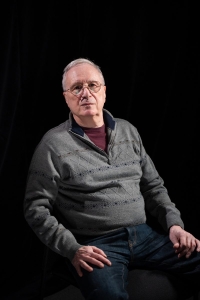A Jewish doctor, who carried his trauma to the US
Ján Roda was born on 14 December 1952 in Žilina, his parents were also from Zilina. They were of Jewish origin, and both survived the holocaust during World War II. His paternal grandparents perished during the holocaust, and he didn’t know them. The whole family, especially his parents, were severely impacted by this. His father, Juraj Roda, was a physician, and his mother, Marion Pearl, was a housewife. Both parents came from rich Jewish families; they were secular and only attended the synagogue during big religious holidays. Jan’s father studied medicine at the Charles University in Prague; his job as a medical doctor saved his life during the Second World War because he was needed by the regime of the Slovak Republic. As a physician, he participated in the Slovak National Uprising; after the war, he joined the Communist Party of Czechoslovakia. His son understood the lack of freedom of the communist regime already at the grammar school. He knew his parents didn’t talk about certain things at home. They were afraid of the regime’s repressions because his father was investigated at the beginning as a Jewish physician during the show trials with the enemies of the regime. After the invasion of the Warsaw Pact troops in 1968, he however didn’t consider a public protest. With his father, a communist, he argued often about the nature of the regime at home. He lived through normalisation at the university in Prague, where he studied hygiene. He didn’t participate in the activities of the dissent but was active in the local Jewish community. After completing his studies in medicine, he started to work as a hygienist in Rimavska Sobota. He wanted to work as a psychiatrist, which he was already interested in at the university. After 2 years after completing the compulsory military service, he completed the postgraduate medical certification in psychology. Shortly afterwards, he decided to emigrate to the US, where he, after completing further education and training, started to work as a psychologist and psychoanalyst.
